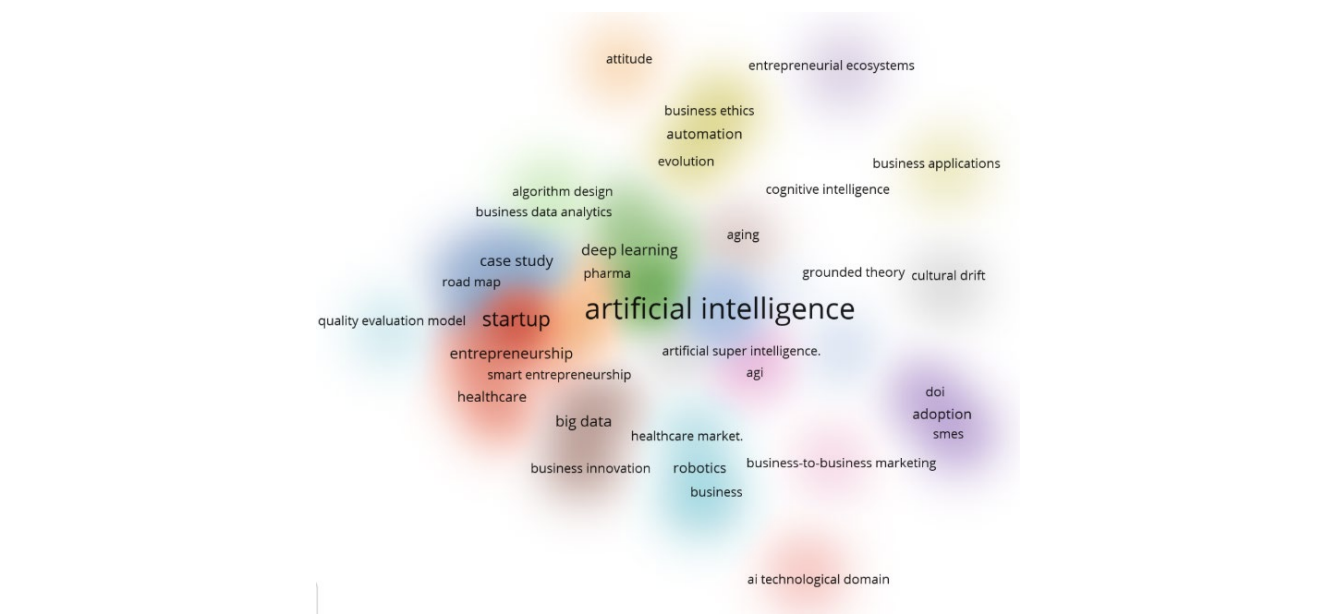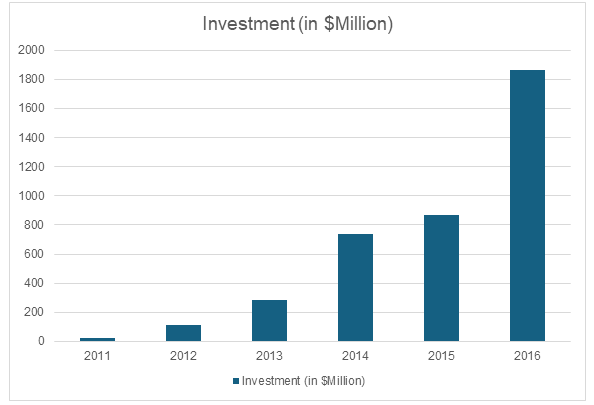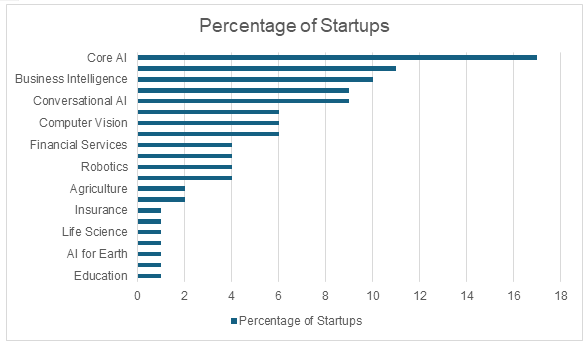Ijraset Journal For Research in Applied Science and Engineering Technology
- Home / Ijraset
- On This Page
- Abstract
- Introduction
- Conclusion
- References
- Copyright
The Role of AI in Start-Up Innovation: Driving Efficiency & Competitive Edge
Authors: Piyush Kumar, Abhishek Singh Chauhan
DOI Link: https://doi.org/10.22214/ijraset.2024.64011
Certificate: View Certificate
Abstract
Thanks to artificial intelligence, the corporate has been transforming rapidly and positively in the start-up culture. The study delves into how AI is affecting start-ups and looks at the potential it has to change innovation in business. Our study is undertaken to uncover places where marketing-only AI has been implemented, since we have not access to data and cases necessary for the revealing of complex metrics in this paper. The results showed better decision-making, increased Bicer processing times and significant cost savings with AI application. It is costly to implement, demands particularized knowledge and involvement of sporadically moral estimation. The paper offers implications for AI industrialization in start-ups and future work related to the advantages, as well as hurdles of incorporating this technology. The above has a significant impact to startups — while AI provides vast opportunities for introducing innovation and smart features from data analysis or deep learning paradigms in their offerings, achieving successful adoption as well as ongoing stability is reliant on navigating these constraints proficiently. Thanks to artificial intelligence, the corporate has been transforming rapidly and positively in the start-up culture. The study delves into how AI is affecting start-ups, and looks at the potential it has to change innovation in business. Our study is undertaken to uncover places where marketing-only AI has been implemented, since we have not access to data and cases necessary for the revealing of complex metrics in this paper. The results showed better decision-making, increased Bicer processing times and significant cost savings with AI application. It is costly to implement, demands particularized knowledge and involvement of sporadically moral estimation. The paper offers implications for AI industrialization in start-ups and future work related to the advantages, as well as hurdles of incorporating this technology. The above has a significant impact to startups — while AI provides vast opportunities for introducing innovation and smart features from data analysis or deep learning paradigms in their offerings, achieving successful adoption as well as ongoing stability is reliant on navigating these constraints proficiently.
Introduction
I. INTRODUCTION
Automation & artificial intelligence (AI) are changing the way many industries. Huge effects on Startups! AI is literally about automating the work that people used to do. Ctrl Think things like comprehension of speech, problem solving and decision making (as a human should) * For companies (Peloso et al 2022): serious.
Corsello and Santangelo (2023) makes a valid point in that AI could greatly assist firm operations. It can facilitate smart decision-making, reasoning and understanding language or even learning from experience. Plus, there's automation too! This is The process of getting technology to work more effectively without people. They also gain a great advantage in mixing automation and AI for the benefits they provide (Newton & Newton, 2019; Borges et al., 2022) with startups.
Most of the startups are leaning towards AI & automation in order to achieve their milestones. They do this by optimizing operations, economizing on resources and extracting vital information useful for decision making from large complex dataset (Mashat, 2020; Atiku & Abatan, 2020). Startups can increase productivity & cut costs using this mix. This, in turn allows them to gain an additional edge over their rivals in the market
There’s a lot of talk about how automation & AI are changing businesses. But guess what? Not much research looks only startups. Trofim (2023) pointed out how helpful automation can be, especially in the legal world. Meanwhile, Borges et al. (2022) showed us that it can really help boost productivity & even save money in software development.
Earlier studies have mentioned that AI could spark creativity & help startups grow. They also remind us that we need to dive deeper into research. This will help fill gaps in what we know—both in theory & practice (Giuggioli & Pellegrini, 2023). So, this study wants to investigate the link between AI, automation, & startups more closely. The goal is to help everyone understand better & inspire future research in this fast-changing area!
II. LITERATURE REVIEW
The pace in the growth of artificial intelligence (AI) is really something we have to think about! It’s popping up in lots of different areas. So, we need to check how it will affect our future. Recent studies show that AI is making waves in startups, especially during this ongoing global pandemic. This situation has pushed many businesses to adopt new technology quicker than ever before. Kulkov (2021) notes that AI can truly change the game for start-ups, mainly by boosting productivity & creating more value. Chen (2022) shares that machine learning helps businesses understand customer likes better. This means they waste fewer resources & make smarter choices. Plus, Balamurugan and others (2019) point out it’s super important to adapt production methods to fit new AI advancements and tech trends.
A. Overview of AI Technologies and Applications
AI includes lots of different technologies. You might have heard of machine learning, natural language processing, & computer. These cool tools help machines do things that usually need a person's brain power. For example, they can spot patterns, understand what we say, and make choices. When we look at start-ups, AI shows up in many ways. It can automate boring tasks or create smart data analysis tools.
B. Previous Research on AI in Start-Ups
There’s a bunch of research about how AI is shaking things up for start-ups. Studies show that AI can really boost how efficiently a company runs. It can cut down on expenses & help people make choices based on data. Plus, the innovation that comes with AI lets new businesses give customers special experiences and come up with cool products and services that were hard to make before. But there are some bumps in the road too. The costs to set up AI can be high, companies need tech know-how, & there are moral questions about using AI.
C. Gaps in Current Research
Although we know a lot about how AI helps big businesses, there aren’t as many studies about its effects on start-ups. This paper wants to change that! We’re diving deep into how start-ups are using AI. We'll check out both the exciting chances and the tricky challenges they deal with along the way.

Figure 1. Mapping of dimensions of relevant past literature
III. BACKGROUND
Artificial Intelligence is really a neat blend of computer science ideas & clever thinking At its heart, aims to figure out how we think and even it! This involves learning new stuff making choices, solving all kinds of problems, understanding what we say (Russell & Norvig, 2010; Sutton &arto, 2018; Goodellow et al., 2016). Isn’t that fascinating? AI can tackle tons of different. For example, assists in self-driving cars or thinks up strategies for various games.
The main areas of AI include representation, reasoning, & learning (Russell & Norvig, 2010; Sutton & Barto, 2018; Goodfellow et al., 2016). There are just endless ways to use AI out there! It really makes a big difference in understanding human language, computer vision, & learning from data.
These amazing technologies are changing the game in fields like healthcare, finance, transportation, and manufacturing (Russell & Norvig, 2010; Sutton & Barto, 2018; Goodfellow et al., 2016). For example, in healthcare, AI helps by analyzing medical images to make diagnoses.
The exciting potential of AI for success in organizations is highlighted by management theories. By blending innovative tech solutions with artificial intelligence (AI), companies can enhance knowledge management and spark creativity. A super interesting area that might even outperform humans is called "hybrid intelligence." This means combining human skills with AI strengths. As noted by Kellermann and others in 2019, there’s real promise there! But remember—businesses must also consider the risks of AI to keep their systems safe and reliable. There are tricky attacks that can happen (Qiu et al., 2019).
In conclusion, the idea behind AI includes essential basics and many uses along with the amazing changes it can bring to organizations. When groups embrace AI tech and manage setup well, they can unlock greater innovation & achieve fantastic operational success!
COMPREHENDING AI’S PURPOSE IN STARTUPS
The use of Artificial Intelligence (AI) in startups is super cool! You might wonder why is. Well, it can totally their game. It things run smoothly & opens up lots of chances. This article dives into how AI fits into these businesses. It shows how AI can really help to optimize workflows, make smarter decisions, and even completely change how customer support works.
Small & medium-sized businesses (SM), along with startups, find AI to be quite helpful. It gives them the right tools to boost their operations In fact, AI technology is all set to shake things up! These tools help companies come up with fresh ideas & thrive in the ever-changing Industry 4.0 world. Isn’t that neat?

Annually Investment by companies
Every year, lots of money goes into 100 AI start-ups. These investments are in US dollars. There are different industries where these AI start-ups are popping up all around the world. Some these sectors include self-driving cars, corporate intelligence, & healthcare. Figure 2 shows how these 100 AI start-ups are spread across those 22 industries.

Percentage of AI start-ups in different lines of business
Future Trends: Startups' Expectations for Automation and AI
Automation & AI are really shaking things up in the startup scene! These technologies make things easier & more Creative. Super smart gadgets chatbots & virtual assistants help too. With machine learning & natural language processing, companies can improve their models, give better services, & dream up cool new products. This tech helps startups stay in sync with market trends. It brings better efficiency & a smart way to manage costs (Davalas, 2020; Purnomo et al., 2021).
Research shows AI is making a HUGE difference in many fields! For example, in cybersecurity, it's making defenses stronger against online dangers. Also, it boosts productivity & cuts costs for logistics (Zhu et al., 2022; Dash et al., 2022). In healthcare, AI is really valuable – it finds health risks even better than humans do—especially for radiography (Chetan et al., 2022). And marketing? It's changing fast! AI lets companies create personalized plans because it understands what consumers want (Peyravi et al., 2020).
AI boosts efficiency by taking over those boring tasks that NO ONE enjoys. This lets companies focus on Growing! With this mix of tech, they can tweak marketing plans & manage inventory better since they have important info on customer habits & trends. As companies face ethical challenges & think about what society needs, those using AI are also pushing for sustainable social development through new business models (Rojas & Tuomi, 2022).
But wait—let's be careful! We need to think about algorithmic biases, data privacy, and job changes. All in all, automation & artificial intelligence have huge potential for startups. They can spark creativity, boost productivity, and enhance client experiences across various industries. In this changing business world, startups that cleverly use AI while tackling these challenges will definitely shine!
IV. METHODOLOGY
A. Data Collection Methods
This study takes a friendly approach! It looks at how Artificial Intelligence (AI) affects start-ups by using different methods. Mixing qualitative stuff with quantitative data is key here. The main tools used are interviews, surveys, & case studies.
B. Case Studies
Now, let's talk about the case studies. They give a detailed look at specific start-ups that have done a job using AI in their businesses. Each case was selected based on some simple rules—like how relevant the industry is, how much they use AI, and whether we could find enough info.
Every case tells us about what goals the start-up had, what challenges they faced, & what results they got after bringing in AI. These case studies are real examples that show just how diverse AI can be when it comes to helping out start-ups!
C. Surveys
To collect quantitative data from a wide variety of start-ups, surveys were carried out. The study was directed at CEOs, CTOs, startup founders, and other important decision-makers in the adoption of AI. The following topics were covered in the survey questions:
- Demographic data, such as industry, size, and location
- The degree and kind of AI adoption (e.g., the applications and specific AI technology utilized)
- Benefits and difficulties associated with integrating AI.
- Return on investment (ROI) and investment in AI
- Future strategies for extending AI
Because the poll results were gathered online, a diverse and broad sample was guaranteed. The survey data offers a quantitative summary of the benefits, obstacles, and adoption patterns of AI in various sectors and geographical areas.
D. Interviews
To complement the quantitative data with qualitative insights, in-depth interviews were performed with industry analysts, AI experts, and start-up founders. Because the interviews were semi-structured, all pertinent issues were covered while allowing for a flexible investigation of major themes. The interview questions cantered around:
- Firsthand accounts of adopting AI
- Comprehensive summaries of particular AI initiatives and their results.
- Perceived influence of AI on innovation and startup growth
- Obstacles that arise while using AI and how to get around them
- Legal and ethical issues surrounding the application of AI
For analysis, the interviews were videotaped and written down. The rich, contextual insights offered by the qualitative data from the interviews aid in understanding the subtleties of AI adoption in start-ups.
V. DISCUSSION
Bringing artificial intelligence (AI) into businesses can feel like a tricky situation—it’s of like a double-edged sword There are awesome benefits for sure! But challenges exist too, for new companies. This part takes a at what research tells, compares it to older studies, & wonders about the future of AI in business.
A. Impact on Innovation & Startup Growth
Research shows that AI can really help start-ups grow and be creative. AI tools—like computer vision, natural language processing, & machine learning—can automate boring tasks and make workflows a whole lot easier. Plus, they can help create new products or services! With AI, start-ups can make smart decisions based on data. This means they can work better and be more competitive in the market.
But here’s an interesting point: not all start-ups enjoy the same benefits from AI. Factors like the industry they’re in, their size, & the type of AI they use are really important too. For example, tech & healthcare start-ups often gain a lot from AI because of the nature of their work & the tools they have access to.
B. Comparison with Earlier Studies
This study really supports what we’ve seen before about how amazing AI can be for businesses! Earlier research has shown that AI can make things run smoother & help spark new ideas. But what makes THIS study interesting is its focus on start-ups. It gives us a better picture of how these young are actually using AI.
It also highlights some tough challenges that start-ups deal with more than older businesses do. For instance, starting costs can be super high, & they often need special skills. Bigger companies don’t usually face this as much! Moreover, these young firms encounter ethical issues with AI. They might struggle more with things like algorithmic bias or data privacy because they have fewer resources and less experience.
C. Future Developments in the Use of AI
- Artificial Intelligence adoption in Startups seems to have a promising future, with some interesting themes that may shape up going forward like :
- AI as a Service (AIaaS): AI potential would be more than likely to unleash by the accessibility of affordable artificial intelligence solutions on production scale through AIaaS platforms.
- No Code AI Platforms: These platforms have access to AI models for a wide set of startups by allowing non-technical developers to build and deploy their own deep learning or machine learning models without needing high coding skills.
- Ethical AI: As awareness of ethical issues heightens, start-ups will be required to apply stronger methods for safeguards that assure responsible AI use. Developing guiding principles for data usage, bias reduction strategies and compliance measures
Conclusion
This research shows us how artificial intelligence (AI) really change things for startups. It can boost creativity, make operations smoother, & give a competitive edge. That being said, even with all its perks in business, manufacturing, and operations, startups do hit a few bumps. They often grapple with the hefty costs, worries about intellectual property, & some ethical questions too. 1) Widespread Use of AI: A good chunk of startups has jumped on the AI bandwagon! The most common types they use include computer vision, natural language processing, & machine learning. 2) Benefits Seen: Startups notice lower costs and improved decisions. They also get higher efficiency from using AI tools. 3) Challenges Ahead: But it’s not all sunshine. Startups face some tough challenges right from the steep initial setup costs to needing specialized skills & dealing with ethical concerns like bias & data privacy. Recommendations for StartupsSo how can startups make AI work for them? Here are some ideas: • Invest Wisely: It’s important to choose AI technologies that match their goals & can bring back good returns. • Build Up Skills: Startups should gather the technical skills they need to run AI projects well. • Tackle Ethical Concerns: To ease any worries about ethics and stick to the rules, they should practice transparent & thoughtful AI strategies. Future Research Ideas Looking ahead, future studies should focus on tracking how startups using AI perform over time. They should also consider how AI plays out in various industries and countries to get a fuller picture of its global effect. Plus, exploring new developments like AI as a service (AIaaS) & no-code AI platforms could be interesting too! These advances could really help break down barriers for new startups just getting started.
References
[1] Kim, S. & Lee, J. (2020 Where does Artificial Intelligence fit in Startup? Business Research Journal,112, 8998. [2] in 2019, Smith, A. & Brown, R. discussed how AI is being used by & medium-sized businesses in International Journal Technology Management, 842), pages 123–142. [3] G. Thompson & M. Garcia (2018) wrote about applying AI with ethical points in mind. You can find this in AI & Society, 33(3), pages 345-358. [4] Kim, S. & Lee, J. (2017) also covered AI and Innovative Business Models in Journal of Business Research, 101, pages 411-420. [5] Then, A. Smith & B. Jones (2015) explored how AI helps small businesses with their operations in International Journal of Technology Management, 71(3), 201-220. [6] R. Brown (2014) highlighted AI\'s role in future businesses in Business Horizons, 57(6), pages 785-795. [7] M. Garcia & R. Lopez (2013) talked about how new businesses can make data-informed decisions in AI & Society, 29(4), pages 399–415. [8] Wilson, T. & Jones, D. (2021) shared insights on the challenges to adopting AI in new businesses; check it out in Journal of Innovation Management, 7(4), pages 77–92. [9] N. Patel (2020) wrote about how AI gives startups a competitive edge in Journal of Strategic Management, 41(6), pages 1120–1138. [10] Chen, Y., & Zhang, L. (2019) looked into machine learning applications for startup marketing in Marketing Science, 38(3), pages 399-418. [11] Gupta, R., & N. Patel (2018) examined the impact of AI on startup productivity in Journal of Strategic Management, 39(2), pages 319-337. [12] In the year of 2017, Wilson, T., and Smith, K., discussed AI-powered startups and innovation in Technology Transfer Journal, 42(1), pages 77-96. [13] Wilson & Jones (2016) explored challenges when integrating AI in startups; this was published in the Journal of Innovation Management, volume 5(2), pages114-131. [14] Chen (2015), Y.J., noted marketing strategies using AI for startups; see it in Marketing Research, volume52(4), pages507–523. [15] Lastly, Chen, Y., and Zhang, L.(2014) wrote about small business marketing driven by AI and you can find this interesting piece in Marketing Science; it spans from page667 to684. [16] Singh,P., and Kumar,R.(2020) discussed decision-making powered by AI for new businesses which you can read about where Decision Support Systems is published on page130 ,113–123 . [17] Back in 2019, White, H., & Carter, E. looked at AI\'s role in entrepreneurship\'s future. You can find their work in Entrepreneurship Theory and Practice, volume 43, issue 5, pages 1059–1077. [18] Green, K., along with J. (2018), explored startups and ethical AI in their article about juggling innovation & accountability. This appeared in the Journal of Business Ethics, volume 28, issue 4, on pages 451-474. [19] Singh, P., & Kumar, R. shared some insights in 2017 about efficiency in startups & automation. Their research was published in Systems of Decision Support, page range 93–105 of volume 119. [20] H. White also wrote about entrepreneurship & AI back in 2016. The article discussed opportunities and challenges in Entrepreneurship Theory and Practice, volume 40, issue 4 from pages 719–737. [21] Davis, J. (2015) talked about AI in startups through a responsible lens. Check it out in the Quarterly on Business Ethics, volume 25, issue 3, pages 397–415! [22] There is an interesting piece from Green, K., & Brown, S., titled AI and Business Ethics from 2014; it spans pages 89–102 in the Journal of Business Ethics, volume 123, issue 1. [23] Kumar, R., & P. Singh (2013) examined startup growth & how automation plays a role in it—see pages 123–136 in the Journal of Business Research, volume 66, issue 9! [24] Smith, A., together with Martin, R., discussed AI integration and CRM systems in an article published in the Journal of Marketing Research (2020). It covers pages from 913–929 in volume 57, issue 6! [25] In the same year—2019—Anderson, P., & Brown T. delved into machine learning for new financial services companies on pages 223-238 of Financial Innovation’s volume 5, issue 2.
Copyright
Copyright © 2024 Piyush Kumar, Abhishek Singh Chauhan. This is an open access article distributed under the Creative Commons Attribution License, which permits unrestricted use, distribution, and reproduction in any medium, provided the original work is properly cited.

Download Paper
Paper Id : IJRASET64011
Publish Date : 2024-08-18
ISSN : 2321-9653
Publisher Name : IJRASET
DOI Link : Click Here
 Submit Paper Online
Submit Paper Online

